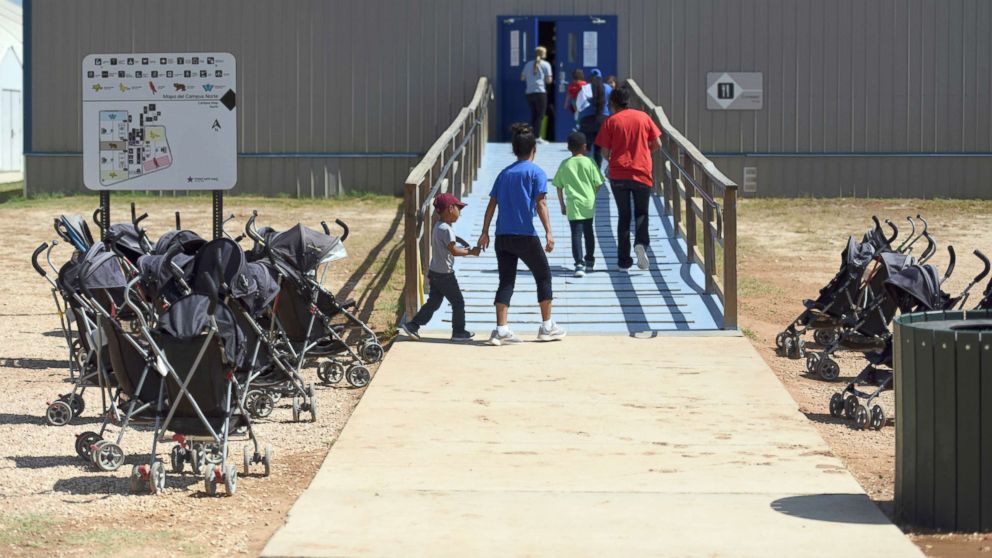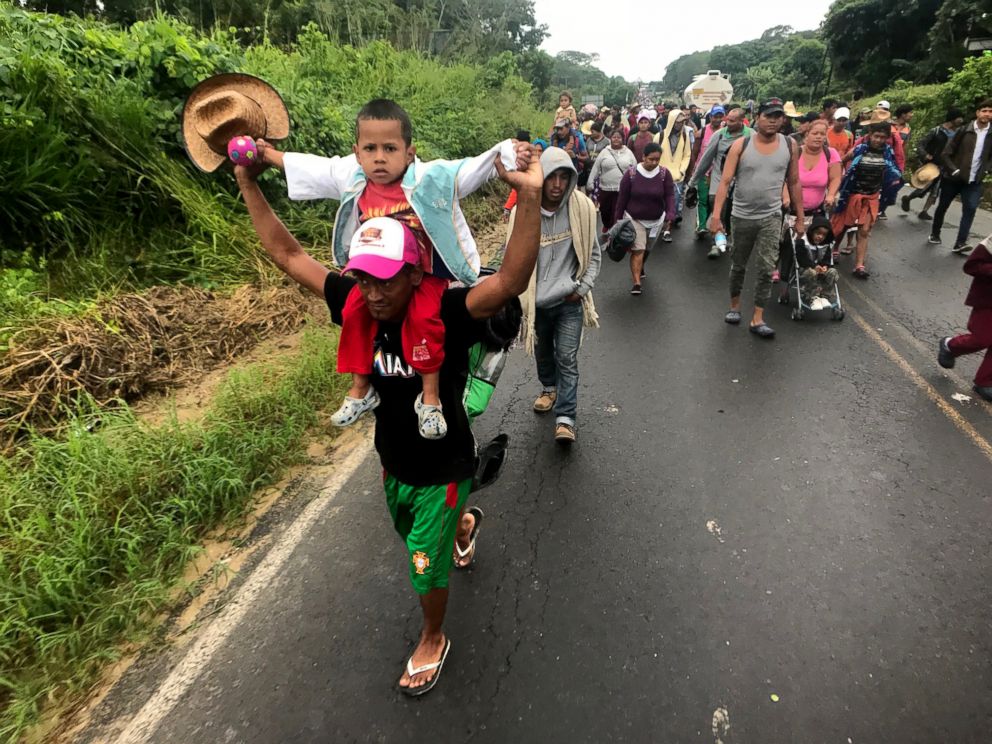Trump's plan to deport 'millions' likely not feasible
U.S. officials have said that at most 400K people could be deported in one year
President Donald Trump's promise on the eve of a campaign rally to begin deporting next week "millions" of people living in the U.S. illegally is raising the issue of how the administration could feasibly launch such a massive operation because it's out of space to hold them.
Also in question would be whether the administration would further abandon its past focus of deporting undocumented migrants convicted of crimes in order to deport families, which at least one top official said was inevitable. Another concern would be that families could be separated, possibly leaving thousands of young children in limbo without guardians.
John Cohen, a former senior Homeland Security Department official and current ABC News contributor, said the logistics of such an operation would require diverting law enforcement from high priority criminal targets and put a significant strain on limited resources.
"There's no way operationally they are going to be able to do it," Cohen said.

Trump's plan, announced via Twitter, left administration officials in charge of immigration policy and enforcement scrambling to respond to questions about what would happen next.
Law enforcement officials said they don't discuss enforcement operations publicly in advance. One senior administration official, speaking on condition of anonymity, said mass deportations were "not imminent."
A statement released Tuesday by the U.S. Immigration and Customs Enforcement noted that officials there would "continue" to enforce immigration law "without exemption," adding, "This includes routine targeted enforcement operations, criminals, individuals subject to removal orders, and worksite enforcement."
But the statement did not address whether operations would expand.
Trump has clearly favored the idea of targeting the hundreds of thousands of families arriving at the border in recent months, as well as those already settled inside the U.S. His new pick to head ICE hinted at it last month in a meeting with reporters.
"Our next challenge is going to be interior enforcement," Morgan said. "We will be going after individuals who have gone through due process and who have received final orders of deportation.
"That will include families," Morgan said, adding that ICE agents will deport them "with compassion and humanity."
Among the top challenges of such a plan would be bed space, enforcement personnel and other resources to arrest, detain and deport people.

Last year, ICE deported 256,000 people, the highest level since 2014. But federal officials have said it's unlikely that much more can be done with existing resources. During the Obama administration, ICE and DHS officials testified that the most that could be deported in any given year would be about 400,000 people.
One issue, in particular, is bed space. As of the end of May, U.S. Immigration and Customs Enforcement had nearly 52,400 people in its custody – including nearly 1,000 families at residential centers. While ICE is given some flexibility, this year's budget provides money for less than 45,300 beds. More detention space would require Congress' approval, which is unlikely so long as Democrats control the House.
Trump even acknowledged the lack of bed space earlier this year in remarks he made last March in Florida.
"We have run out of space, we can't hold people anymore and Mexico can stop it so easily," he said.
The White House has openly sparred on the issue of detention space with congressional Democrats, who support limiting the bed space as a way of forcing the federal government to focus deportations on convicted criminals. The issue was hotly debated earlier this year in negotiations over government funding which resulted in the longest federal shutdown in American history.
"A cap on ICE detention beds will force the Trump Admin to prioritize deportation for criminals and people posing real security threats, not law-abiding immigrants contributing to our country," said Rep. Lucille Roybal-Allard, D-Calif.




